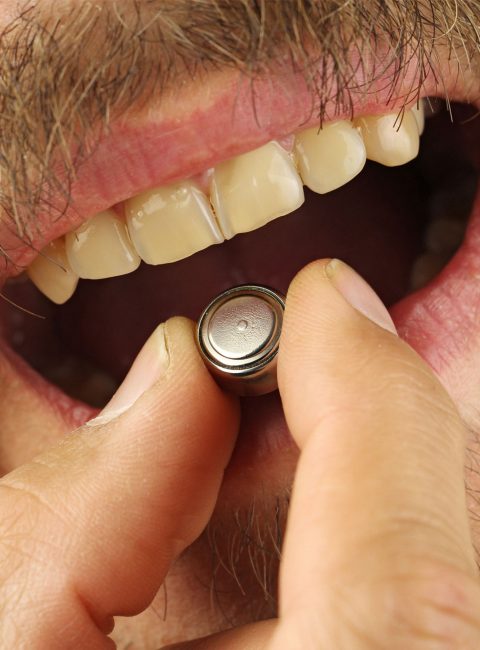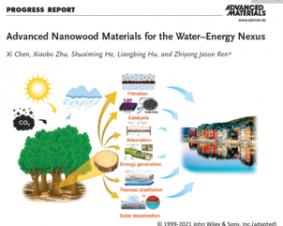 >
Spotlight May 2023: Dual energy – edible batteries
>
Spotlight May 2023: Dual energy – edible batteries
An Italian research group reports on edible batteries that supply electric current and can be digested as food, thus providing energy a second time. What sounds funny at first has a serious background, because in medicine, power sources are needed that could be transported through the digestive tract and possibly remain in the body unintentionally, e.g., for swallowable mini-cameras that could be used in gastroscopies and colonoscopies. If the battery materials are then digestible, there will be no problematic effects from the battery if it does not pass through the body quickly enough.
The battery presented is composed of dietary and nutritional supplements, and since all components are either digestible or pass through the body unchanged, they could actually be eaten. The authors did test the battery’s functionality, so it does provide electricity, but they did not eat their battery because the battery case was too large and not constructed of digestible materials, so more research is needed here.
Original publication:
Ilic, I. K., Galli, V., Lamanna, L., Cataldi, P., Pasquale, L., Annese, V. F., Athanassiou, A., Caironi, M., An Edible Rechargeable Battery. Adv. Mater. 2023, 2211400.

Weitere Spotlights
Spotlight July 2022: New definition on nanomaterials published
The European Union has published a new definition for nanomaterials as of June 2022. It is recommended that this be used as a basis for future legislation. The new documents can be found on the EC website. In the new “nanodefinition”, the essential components such as the origin or the size range of the particles […]
Read moreSpotlight October 2022: The titanium dioxide debate – why the current ECHA and EFSA hazard classification should be questioned
Due to various reports and scientific studies, titanium dioxide (TiO2)was also banned in Europe this year (2022) for use as a food additive with the indication that it could possibly be carcinogenic to humans. Although no case of tumour induction in humans has been reported since the use of this material in micro but also […]
Read moreSpotlight July 2021: The Path to Digital Material Research – It is never too late to start
Machine Learning, Artificial Intelligence, Big Data…. Have you read these words lately? No, these are not just buzzwords. The digitalisation of science is an evolving topic that is gaining importance with each passing day. That is why this month we would like to introduce you to the article “Digital Transformation in Materials Science: A Paradigm […]
Read moreSpotlight September 2021: Wood, the raw material of the future?
One of the greatest challenges facing humanity is to produce clean drinking water under the given circumstances of global warming, population growth and increasing littering. In September, we would like to present a review article that believes one approach to solve this problem is the use of nanoscale wood. In the review, “Advanced Nanowood Materials […]
Read more


